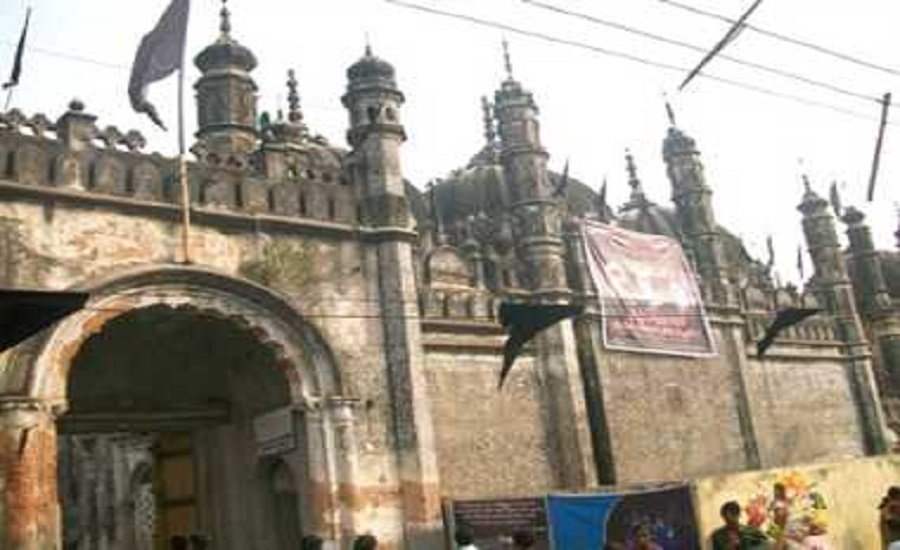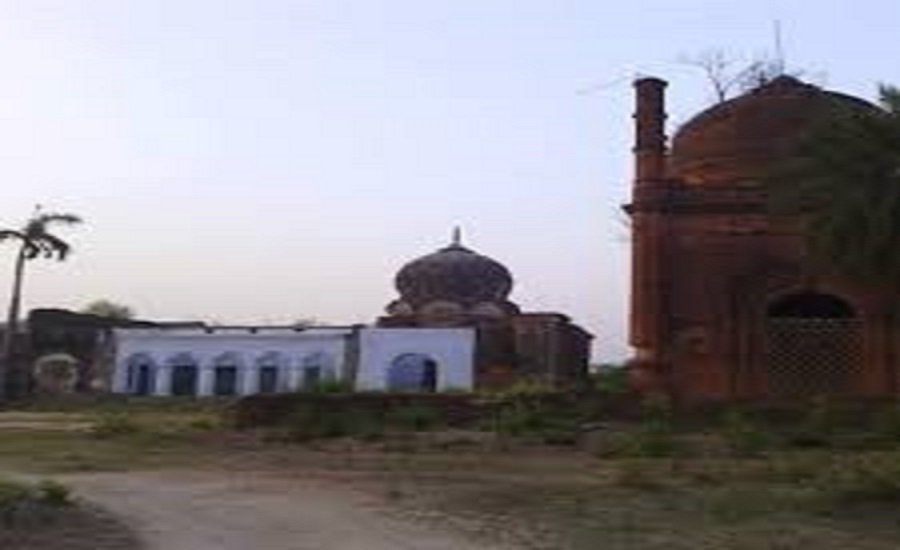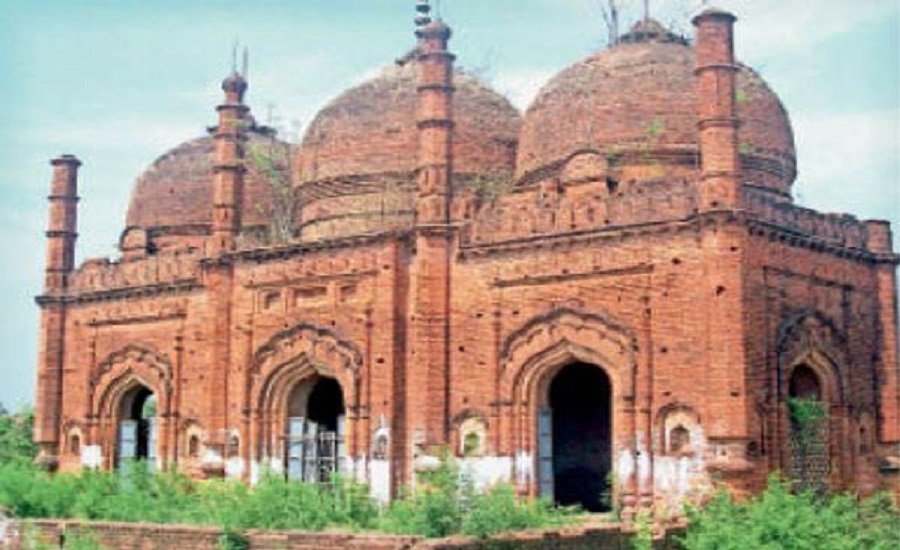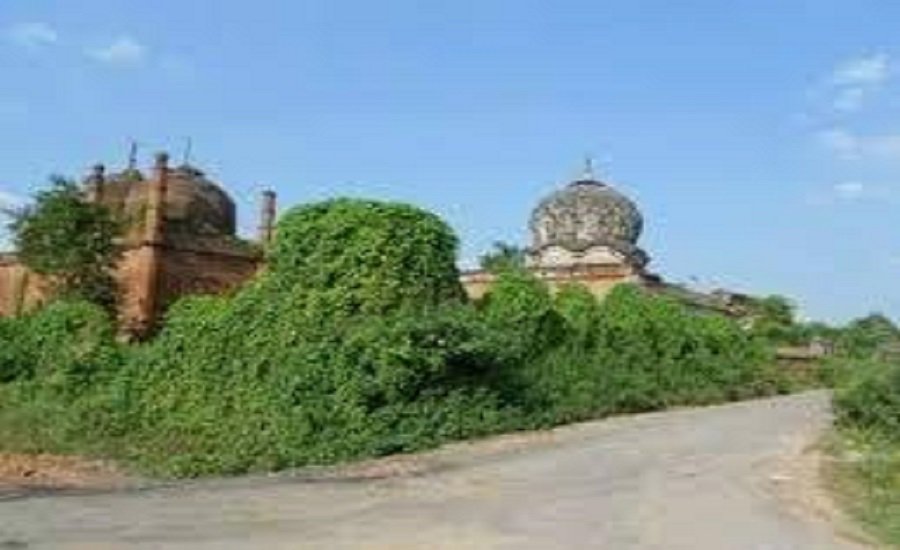The historical records testify that the ancestors of the Nawabs of Hussainabad originally came from Iran and were in the court of Emperor Akbar
Syed Ali Mujtaba | Clarion India
THE Princely state of Hussainabad in Bihar’s Sheikhpura district is now a forsaken place, where once the Shia Nawabs held sway. The palace is in complete depleted condition and the mosque is abandoned. Though the village is thriving with life but its Shia quarter is a haunting locality, most of the Shia population has migrated elsewhere. None the less the ruins there are testimony to the fact that the princely state of Hussainabad had a glorious past.
The Princely state of Hussainabad came into existence at the time of Emperor Akbar. This is recorded in many Persian texts and the British Gazetteer of Monghyr. It has a long account of this principality in this district.

The historical records testify that the ancestors of the Nawabs of Hussainabad originally came from Iran and were in the court of Emperor Akbar. The Mughal Emperor granted the Mansab of the numerous villages in and around Hussianbab which is currently in the Shiekhpura district a few kilometres away from the Sheikhpura town.
It is in public memory that Nawabs of Hussainabad were instrumental in extending the Kolkata–Kuil railway loop-line to Gaya in 1897. Earlier, people use to get down at Kuil station and had to take ox cart to come to Sheikhpura. There was no other public transport system. The current railway station at Sheikhpura owns the magnanimity of the Nawabs of Hussainabad that they made possible the train stops at Sheikhpura and people get to their homes without much travel.
It’s also in public memory that Nawab Bahadur Ali Khan when felt ill at Hussainabad was taken to Kolkata by train for treatment where he passed away and his body was brought to Hussainabad by the Special Train Saloon on the orders of the then Governor General of India posted in Kolkata.

There is quite much folklore attributed to the Nawabs of Hussainabad and one among them is the distribution of blankets to the Jackals.
One dark night in the cold winter, the Jackals (wild dogs) came near to the palace and made loud noises. The Nawab asked his courtiers about the unsavory sound. ‘Huzoor,’ people are shivering with cold and they are in need of your mercy. The Nawab immediately ordered to distribute blankets to all his subjects. The next day again the same sound was heard by the Nawab and he inquired about the sound. ‘Huzoor,’ people are thanking you for your gesture and kindness and in an act of gratitude, they are making the sound.
It is common folklore that the Nawabs of Hussainabad used to secretly visit his principality to know the condition of his people. He used to find out their problems and tried to address them. There are many wells in the neighbouring villages of the Hussainabad that are testimony to the fact that they were constructed during the Nawab rule.
It is said that in those days the Nawab of Hussainabad used to run a court, where people from several districts came with their litigation and sought his judgment
‘Muharam’ of Hussainabad is still talked about even to this date. The ‘Muharam’ procession from different villages use to come with a lot of fanfare to Hussainabad and the Nawab used to sit under a ‘Shamiyana’ and watched the procession pass by him that culminated at the Karbala (Muslim graveyard ) in Hussainabad.
At present, Syed Asad Raza is taking care of the leftover of the royal family along with his two younger brothers Syed Musi Raza and Syed Kayam Raza. There are very few Shia families left now in Hussainabad. Most of them have migrated elsewhere and are no more connected with their village.
However, the exception is yesteryears actress Kumkum, daughter of Nawab of Hussainabad. Kumkum, born Zaibunnisa, on 22 April 1934 was an Indian film actress from Hussainabad in Sheikhpura district, Bihar. She acted in approximately 115 films during her career.

She is best known for her roles in Mr. X in Bombay (1964), Mother India (1957), Son of India (1962), Kohinoor (1960), Ujala, Naya Daur, Shreeman Funtoosh, Ek Sapera Ek Lutera, Ganga Ki Lahren, Raja Aur Runk, Aankhen (1968), Lalkaar, Geet and Ek Kuwara Ek Kuwari. Kumkum also acted in Bhojpuri films, starting with Ganga Maiyya Tohe Piyari Chadhaibo (1963), which was also the first-ever Bhojpuri film.
During her lifetime Kumkum used to come to Hussainabad at regular intervals. The last time she came to the village was in the month of February 2010 when she met her nephew and the local people. She died in Mumbai due to a heart attack on 28 July 2020 at the age of 86. On her death obits poured but the most touching was from Dharmendra, “Kumkum was my first heroine…How I can forget her”
___________
Syed Ali Mujtaba is a journalist based in Chennai. He comes from village Maanay that’s very close to Hussainabad, Sheikhpura.



